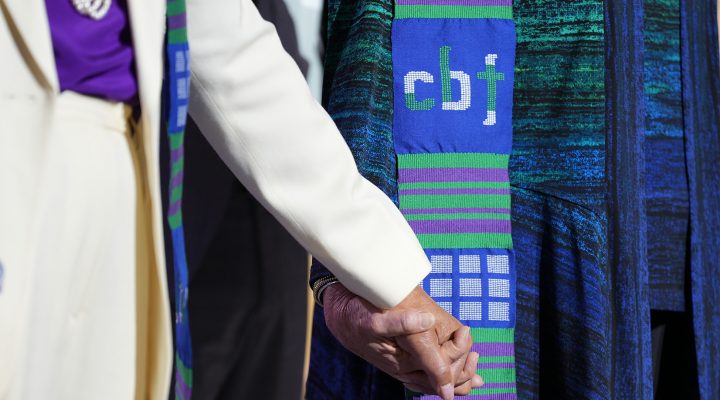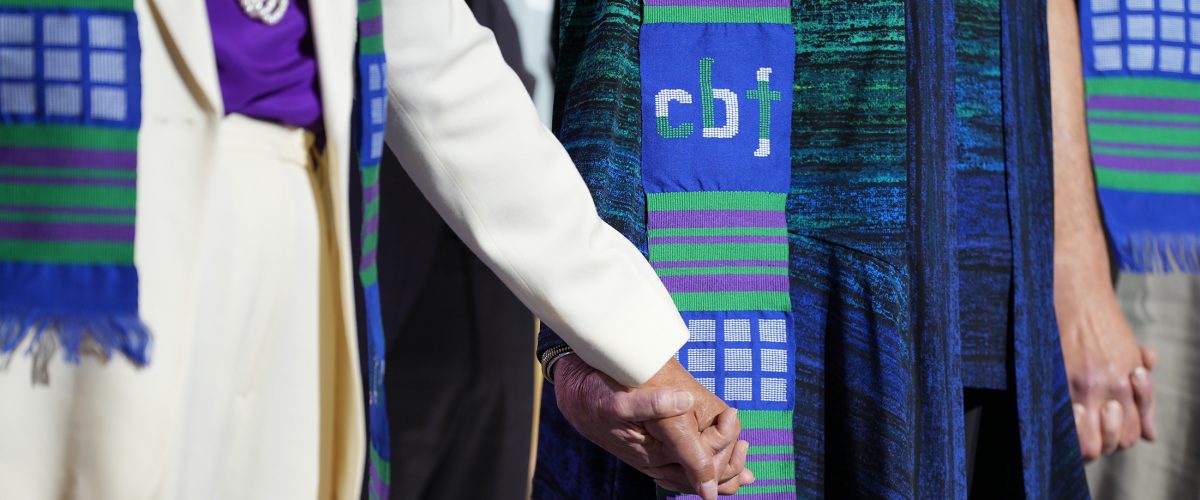One week after the Southern Baptist Convention made national headlines for a variety of its actions, a smaller Baptist group will meet for its annual General Assembly that’s not likely to make headlines anywhere but here at BNG.
And that’s just fine with them.
The Cooperative Baptist Fellowship, now in its 34th year, goes out of its way not to make waves. At this annual gathering, no churches will be challenged for their credentials to be present, no resolutions will be debated or voted upon, no national political candidates will speak, very little business will be conducted, and women will be as prominent as men in leadership roles.
CBF is the antithesis of the SBC because it was birthed out of the SBC. The founders of CBF threw out everything they found to be controversial and focused on the one word in their name that most often is used as a shorthand way of naming this body: Fellowship.
“The founders of CBF threw out everything they found to be controversial and focused on the one word in their name that most often is used as a shorthand way of naming this body: Fellowship.”
That’s not to say there won’t be diversity of opinions, ages, worship style preferences, political preferences and more. Those things just don’t get a platform.
The top elected office in CBF life is called the moderator, and it’s easy for the average person in the pew — and even some pastors — not to know who that is. Unlike the SBC, which had a six-man race for president last week, the CBF moderator is chosen a year in advance and allowed to serve as moderator-elect for one year, then moderator, then past moderator.
This week, Juan García, pastor of Primera Iglesia Bautista de Newport News, Va., will move from moderator-elect to moderator. He will succeed David Hull, a retired pastor from Georgia who now works as a church consultant. Tanya Parks, co-pastor of University Baptist Church in Baton Rouge, La., will become moderator-elect.
If anything could be construed as a controversial bit of business this year it might be approval of a flat budget for 2025. But that’s just the reality of religious life in America today. Other than that, there will be preaching, singing, learning and whole lot of — you guessed it — fellowship.
This hallmark of the “good old days” of the SBC is perhaps the most direct family heirloom CBF carried over from the SBC in 1991. Back before the “conservative resurgence,” before the focus was on getting out the vote, Southern Baptists gathered to have a good time of fellowship as well.
More than a few people have observed through the years that the most important things going on at a CBF General Assembly happen in the exhibit hall, in the hallways and around meal tables. Unlike the SBC, CBF’s General Assembly features several dozen educational workshops sprinkled across the three-day gathering.
This year’s meeting is in Greensboro, N.C. — heartland of the state with the largest regional CBF body and an easy drive for a majority of CBF Baptists.
Those present will celebrate CBF’s Global Missions program, which is tiny compared to the SBC but strong and intentional.

Kristin Adkins Whitesides
Keynote speakers will be Kristin Adkins Whitesides, pastor of First Baptist Church of Winchester, Va.; Paul Baxley, CBF executive coordinator; Zina Jacque, assistant to the pastor for small groups at Alfred Street Baptist Church in Alexandria, Va.; and Eugene Cho, president of Bread for the World.

Eugene Cho
Traditionally, several auxiliary events at General Assembly also feature nationally known speakers and draw large crowds. Among those draws this year will be Jaqueline Thompson, senior pastor of Allen Temple Baptist Church in Oakland, Calif., who will speak at the Emmanuel McCall Racial Justice Trailblazer Luncheon; Angela Denker, author of Red State Christians, who will speak about Christian nationalism at the Baptist Women in Ministry luncheon; and Rice University professor and author Michael Emerson and NPR national correspondent Sarah McCammon, who together will headline the Friends of BNG Dinner.
When it comes to the business session, the CBF Governing Board will recommend a flat budget of $17.5 million. About $9 million of that will come through church offerings that are undesignated or given specifically for Global Missions. And the lion’s share of expenditures, $7 million, will be directed toward Global Missions.

Zina Jacque
While CBF is a beloved denominational home to hundreds of churches formerly affiliated with the SBC, it remains one of the smallest religious bodies in the U.S. Unlike the major denominations, CBF does not publish statistics for its churches, so no direct comparison may be made regarding number of churches, church membership or church attendance.
However, CBF’s $17.5 million budget is small compared to other U.S. denominations. Behind the SBC, The United Methodist Church is the second largest Protestant denomination. Its newly adopted (and greatly reduced) budget for the current four-year period is $346.7 million — or about $86.7 million per year. On the other end, the Episcopal Church in America will operate on a $145 million budget for the coming three years — about $48.3 million per year.
One difference CBF has that may be most visible on a local level is its inclusion of some of the most prominent churches in many cities across the South. Within short range of the site of this year’s meeting, CBF has a tall-steeple presence in Greensboro, Winston-Salem, Raleigh, Durham, Charlotte and High Point.
Those CBF churches are more likely to make headlines than the denomination they affiliate with.


